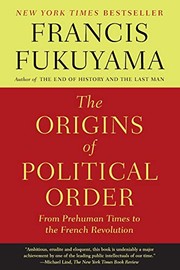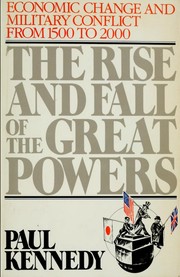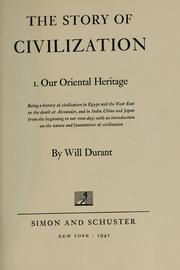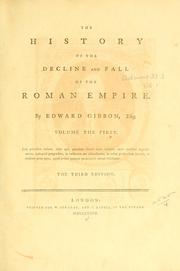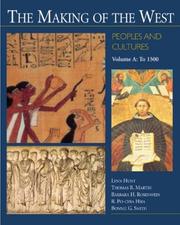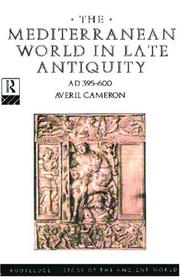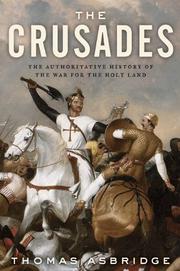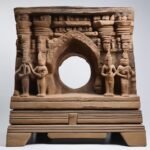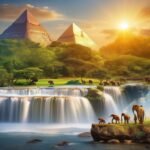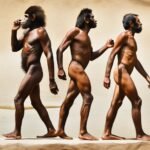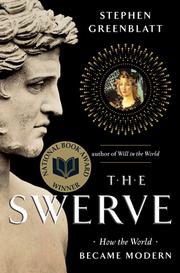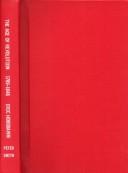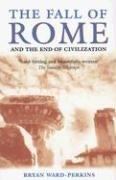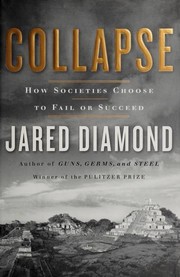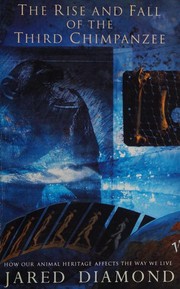Are you fascinated by the rise and fall of ancient empires, the development of societies, and the impact of human civilization on the world? Look no further than this curated list of the 20 best books on civilization. From the dawn of human existence to modern-day societies, these books offer insightful perspectives on the evolution of civilization, the cultural and technological advancements, and the challenges faced by different societies throughout history. Whether you’re a history enthusiast, a student of anthropology, or simply curious about the world we live in, these civilization books are sure to educate and enthrall you with their rich narratives and thought-provoking analyses.
Contents
- 1 20 Best Civilization Books
- 2 Sapiens: A Brief History of Humankind
- 3 Guns, Germs, and Steel: The Fates of Human Societies
- 4 The Silk Roads: A New History of the World
- 5 The Origins of Political Order: From Prehuman Times to the French Revolution
- 6 The Rise and Fall of the Great Powers: Economic Change and Military Conflict from 1500 to 2000
- 7 The Story of Civilization: Volume I – Our Oriental Heritage
- 8 The Decline and Fall of the Roman Empire
- 9 The Making of the West: Peoples and Cultures
- 10 The Mediterranean World in Late Antiquity: AD 395-600
- 11 The Crusades: The Authoritative History of the War for the Holy Land
- 12 The Swerve: How the World Became Modern
- 13 The Reformation: A History
- 14 The Age of Revolution: Europe 1789-1848
- 15 The Rise and Fall of Ancient Egypt
- 16 The Fall of Rome: And the End of Civilization
- 17 The Making of Europe: Conquest, Colonization, and Cultural Change, 950-1350
- 18 The Civilization of the Renaissance in Italy
- 19 The Ottoman Empire and Early Modern Europe
- 20 Collapse: How Societies Choose to Fail or Succeed
- 21 The Rise and Fall of the Third Chimpanzee
- 22 Final Thoughts on Best Civilization Books
- 23
20 Best Civilization Books
Sapiens: A Brief History of Humankind
by Yuval Noah Harari
Sapiens: A Brief History of Humankind by Yuval Noah Harari is a captivating exploration of the history of human civilization. This thought-provoking book delves into the evolution of Homo sapiens from their early days as foragers to the present day, examining how various revolutions – cognitive, agricultural, and scientific – have shaped the course of human history. Harari skillfully weaves together anthropology, biology, and history to provide a comprehensive overview of the development of human societies, shedding light on the cultural, social, and technological advancements that have propelled civilization forward. Through engaging storytelling and insightful analysis, Sapiens challenges readers to reconsider their understanding of the human experience and contemplate the impact of human behavior on the planet. This compelling book about civilization offers a fresh perspective on the forces that have shaped the world we live in today, making it a must-read for anyone interested in the complex tapestry of human history.
Guns, Germs, and Steel: The Fates of Human Societies
by Jared Diamond
Guns, Germs, and Steel: The Fates of Human Societies by Jared Diamond is a groundbreaking book on civilization that explores the factors that led to the rise of certain societies over others. Diamond argues that the inequalities in power and wealth between different civilizations can be attributed to environmental factors, such as the availability of domesticable plants and animals, as well as geographic advantages. Through a comprehensive analysis of human history, Diamond presents a compelling case for why some societies developed advanced technology and political systems, while others lagged behind.
This civilization book delves into the impact of guns, germs, and steel on the course of human history, shedding light on the complex interplay of factors that shaped the world we live in today. Diamond’s engaging writing style and thought-provoking insights make this book about civilization a must-read for anyone interested in understanding the forces that have shaped human societies over millennia.
The Silk Roads: A New History of the World
by Peter Frankopan
The Silk Roads: A New History of the World by Peter Frankopan is a groundbreaking book on civilization that explores the interconnectedness of cultures and societies along the ancient trade routes. Frankopan challenges the Eurocentric view of history by highlighting the pivotal role of the East in shaping the world’s development. The book takes readers on a captivating journey through the Silk Roads, from the rise of empires in the East to the spread of ideas, religions, and goods across continents. It delves into the interactions between different civilizations, the exchange of knowledge and technologies, and the impact of trade on the shaping of the modern world. Frankopan’s engaging narrative weaves together historical events, cultural exchanges, and the lives of individuals to present a comprehensive and compelling story of the Silk Roads. Whether you’re a history enthusiast or simply curious about the interconnectedness of human societies, this civilization book offers a fresh perspective on world history that is both enlightening and thought-provoking.
The Origins of Political Order: From Prehuman Times to the French Revolution
by Francis Fukuyama
The Origins of Political Order: From Prehuman Times to the French Revolution is a fascinating book on civilization that takes readers on a journey through the history of human society and political development. Francis Fukuyama, a renowned political scientist, explores the evolution of political order from its earliest origins to the French Revolution. He delves into the intricate web of factors that have shaped human societies, including culture, religion, and the rule of law. The book provides a comprehensive overview of the development of political institutions, from the emergence of early human societies to the complex structures of modern nation-states.
Fukuyama’s insightful analysis and engaging storytelling make this book about civilization an essential read for anyone interested in understanding the origins of political order. Whether you’re a history enthusiast or a student of political science, this civilization book offers a thought-provoking exploration of the forces that have shaped human civilization throughout the ages.
The Rise and Fall of the Great Powers: Economic Change and Military Conflict from 1500 to 2000
by Paul Kennedy
The Rise and Fall of the Great Powers: Economic Change and Military Conflict from 1500 to 2000 by Paul Kennedy is a groundbreaking book on civilization that explores the intricate relationship between economic strength, military power, and the rise and fall of nations. Kennedy takes readers on a captivating journey through five centuries of global history, offering a comprehensive analysis of how the balance of power has shifted and shaped the world we live in today.
With meticulous research and compelling storytelling, Kennedy examines the key factors that have influenced the trajectory of great powers, from the impact of industrialization to the role of military technology. By delving into the successes and failures of past civilizations, this book about civilization offers valuable insights into the challenges and opportunities that nations face in an ever-changing world.
Whether you are a history enthusiast, a student of international relations, or simply curious about the forces that drive the fate of nations, The Rise and Fall of the Great Powers is a must-read civilization book that will broaden your understanding of global dynamics.
The Story of Civilization: Volume I – Our Oriental Heritage
by Will Durant
The Story of Civilization: Volume I – Our Oriental Heritage by Will Durant is a captivating book about the rise of human civilization in the ancient Orient. This comprehensive and engaging book on civilization explores the history, culture, and achievements of the Eastern world, from the dawn of human civilization to the fall of the Roman Empire. Durant’s vivid storytelling and meticulous research bring to life the fascinating tales of the Mesopotamians, Egyptians, Indians, Chinese, and other ancient societies, shedding light on their contributions to art, science, religion, and philosophy.
Readers will be enthralled by Durant’s vivid descriptions of ancient cities, epic battles, and influential leaders, as well as his thoughtful analysis of the societal, political, and economic forces that shaped the Eastern world. This civilization book is a must-read for anyone interested in the rich tapestry of human history and the enduring legacy of the ancient Orient.
The Decline and Fall of the Roman Empire
by Edward Gibbon
The Decline and Fall of the Roman Empire by Edward Gibbon is a monumental book on civilization that delves into the history of the ancient world. Gibbon’s work is an engaging and comprehensive exploration of the rise and eventual downfall of the Roman Empire, spanning over 1,000 years of history. Through meticulous research and a keen eye for detail, Gibbon presents a vivid portrayal of the political, social, and religious forces that shaped one of the most influential civilizations in human history.
With elegant prose and a critical analysis of historical events, Gibbon’s book about civilization offers readers a captivating journey through the triumphs and tribulations of the Roman Empire. From the height of its power to its eventual collapse, Gibbon’s masterful storytelling and insightful commentary make this civilization book a timeless classic that continues to captivate and educate readers to this day.
The Making of the West: Peoples and Cultures
by Lynn Hunt
The Making of the West: Peoples and Cultures is a comprehensive book about civilization that takes readers on a fascinating journey through the development of Western societies. Written by Lynn Hunt, this engaging and insightful book on civilization explores the diverse peoples and cultures that have shaped Western history, from ancient times to the present day. Through a rich and vivid narrative, Hunt examines the political, social, and cultural forces that have influenced the evolution of Western civilization, offering readers a deep understanding of the complex tapestry of human experience.
With its focus on the interactions and exchanges between different groups and the impact of key historical events, this civilization book provides a compelling exploration of the dynamic and ever-changing nature of Western societies. Whether you are a student, scholar, or history enthusiast, The Making of the West: Peoples and Cultures offers a captivating and informative perspective on the book about civilization that will deepen your appreciation for the complexities of human history.
The Mediterranean World in Late Antiquity: AD 395-600
by Averil Cameron
The Mediterranean World in Late Antiquity: AD 395-600 by Averil Cameron is a captivating book about civilization during a pivotal period in history. Cameron delves into the rich tapestry of the ancient world, exploring the cultural, social, and political dynamics that shaped the Mediterranean civilization during the late antiquity era. Through meticulous research and engaging prose, Cameron brings to life the diverse societies and peoples that inhabited this vibrant region, offering a comprehensive overview of the transformations and continuities that occurred during this period.
Readers will be enthralled by the author’s exploration of the religious and intellectual developments, the rise and fall of empires, and the everyday lives of individuals who inhabited the Mediterranean civilization. With a keen eye for detail and a deep understanding of the historical context, Cameron paints a vivid picture of this book on civilization that will appeal to both scholars and general history enthusiasts alike. The Mediterranean World in Late Antiquity is a must-read for anyone seeking to understand the complexities of this fascinating era.
The Crusades: The Authoritative History of the War for the Holy Land
by Thomas Asbridge
The Crusades: The Authoritative History of the War for the Holy Land by Thomas Asbridge is a comprehensive and gripping account of the epic conflict that shaped the medieval world. Asbridge, a renowned historian, meticulously examines the religious fervor, political intrigue, and military strategy that defined the Crusades. This book on civilization delves into the clash of cultures and the impact of the Crusades on the development of Europe, the Middle East, and beyond.
Through vivid storytelling and meticulous research, Asbridge brings to life the key figures, battles, and events that defined this tumultuous era. Readers will be transported back in time to witness the dramatic confrontations between Christian and Muslim forces, as well as the complex interactions between different Christian factions. Asbridge’s expertise and engaging writing style make this book about civilization a must-read for anyone interested in the history of the Crusades and their profound influence on the shaping of the modern world.
The Swerve: How the World Became Modern
by Stephen Greenblatt
The Swerve: How the World Became Modern by Stephen Greenblatt is a captivating book on civilization that explores the impact of a single ancient manuscript on the course of history. Greenblatt tells the story of the discovery of a nearly forgotten Roman poem, Lucretius’ “On the Nature of Things,” and its profound influence on the Renaissance and the shaping of modern thought. The book takes readers on a journey through the intellectual landscape of the 15th century, delving into the power of ideas and the transformative potential of literature.
Greenblatt’s narrative is rich with detail and insight, offering a compelling exploration of the connections between literature, philosophy, and the evolution of civilization. Through meticulous research and vivid storytelling, he demonstrates how the rediscovery of Lucretius’ work sparked a revolution in human understanding, paving the way for the modern world. The Swerve is a thought-provoking and illuminating book about civilization that sheds light on the profound impact of literature on the course of human history.
The Reformation: A History
by Diarmaid MacCulloch
The Reformation: A History by Diarmaid MacCulloch is a captivating book on civilization that delves into the transformative period of religious upheaval in Europe. MacCulloch, a renowned historian, provides an in-depth exploration of the Reformation, offering a comprehensive analysis of its causes, impact, and lasting effects on society. Through meticulous research and engaging storytelling, the book about civilization paints a vivid picture of the religious, political, and cultural forces at play during this tumultuous time.
MacCulloch’s narrative skillfully weaves together the stories of key figures such as Martin Luther, John Calvin, and Henry VIII, while also examining the broader social and intellectual movements that shaped the Reformation. By providing a nuanced and thought-provoking account of this pivotal moment in history, the civilization book offers readers a deeper understanding of the complex forces that shaped the modern world. Whether you are a history enthusiast or simply curious about the origins of modern society, The Reformation: A History is an essential read for anyone interested in the dynamics of civilization.
The Age of Revolution: Europe 1789-1848
by Eric Hobsbawm
The Age of Revolution: Europe 1789-1848 by Eric Hobsbawm is a captivating book about the tumultuous period of history that shaped the modern world. Hobsbawm’s insightful analysis takes readers on a journey through the political, social, and economic upheavals that occurred in Europe during this time, including the French Revolution, the rise of industrialization, and the spread of revolutionary ideas across the continent.
This civilization book provides a comprehensive overview of the major events and key figures that defined this era, offering a rich tapestry of historical narratives and critical interpretation. Hobsbawm’s engaging writing style and in-depth research make this book a compelling read for anyone interested in understanding the forces that shaped the modern world.
With its focus on the interconnectedness of political and social change, The Age of Revolution is a must-read for history enthusiasts and anyone seeking to gain a deeper understanding of the complexities of the past.
The Rise and Fall of Ancient Egypt
by Toby Wilkinson
The Rise and Fall of Ancient Egypt by Toby Wilkinson is a captivating book about the long and intriguing history of one of the world’s most fascinating civilizations. Wilkinson takes readers on a journey through the timeline of ancient Egypt, from its early beginnings along the Nile to its eventual decline. With vivid storytelling and well-researched details, the author paints a vivid picture of the culture, society, and rulers of this ancient civilization.
This book on civilization provides a comprehensive look at the rise of ancient Egypt, exploring its remarkable achievements in art, architecture, and technology. Wilkinson also delves into the political and social dynamics that shaped this civilization, offering readers a deeper understanding of its complex history. Furthermore, the author dives into the factors that led to the eventual fall of this once-great civilization, providing valuable insights into the forces that can shape the destiny of any society.
For anyone interested in delving into the depths of a civilization book, The Rise and Fall of Ancient Egypt is a must-read, offering a rich and engrossing exploration of this ancient and enigmatic culture.
The Fall of Rome: And the End of Civilization
by Bryan Ward-Perkins
The Fall of Rome: And the End of Civilization by Bryan Ward-Perkins is a compelling exploration of the decline of the Roman Empire and its aftermath. This book on civilization provides a vivid and thought-provoking account of the collapse of one of history’s greatest civilizations and the impact it had on the world. Ward-Perkins argues that the fall of Rome brought about a dramatic and catastrophic end to the sophisticated urban culture, advanced technology, and organized society that characterized the Roman Empire. He contends that the collapse led to a period of chaos, violence, and decline in living standards, ultimately resulting in the end of the classical world and the beginning of the Dark Ages.
Through meticulous research and engaging prose, Ward-Perkins paints a vivid picture of the profound impact of the fall of Rome on civilization, making this book about civilization a must-read for history enthusiasts and anyone interested in understanding the complex dynamics of societal collapse and its aftermath.
The Making of Europe: Conquest, Colonization, and Cultural Change, 950-1350
by Robert Bartlett
The Making of Europe: Conquest, Colonization, and Cultural Change, 950-1350 by Robert Bartlett is a captivating book on civilization that explores the tumultuous period of European history between the 10th and 14th centuries. Bartlett delves into the complex dynamics of conquest, colonization, and cultural transformation that shaped the continent during this pivotal era.
With meticulous research and engaging storytelling, Bartlett unravels the intricate tapestry of medieval Europe, shedding light on the power struggles, religious conflicts, and societal changes that defined the period. From the rise of powerful dynasties to the impact of the Crusades, the book about civilization offers a rich tapestry of historical insights.
Readers will discover how the interplay of politics, religion, and commerce influenced the evolution of European societies, laying the groundwork for the continent’s future development. Whether you are a history enthusiast or simply curious about the forces that shaped the medieval world, Bartlett’s civilization book is a must-read for anyone seeking a deeper understanding of Europe’s formative centuries.
The Civilization of the Renaissance in Italy
by Jacob Burckhardt
The Civilization of the Renaissance in Italy by Jacob Burckhardt is a renowned book on civilization that offers a comprehensive overview of the Italian Renaissance. Burckhardt’s work delves into the cultural, social, and political developments that shaped this transformative period, exploring the revival of classical art and literature, the emergence of humanism, and the evolution of the Italian city-states.
Through meticulous research and vivid storytelling, Burckhardt paints a compelling picture of the Renaissance as a time of immense creativity, innovation, and intellectual curiosity. He examines the lives of prominent figures such as Leonardo da Vinci, Michelangelo, and Machiavelli, shedding light on their contributions to the book about civilization.
With its insightful analysis and engaging prose, The Civilization of the Renaissance in Italy remains a seminal civilization book that continues to captivate readers and scholars alike. Burckhardt’s exploration of this pivotal era provides a rich understanding of the cultural and artistic achievements that continue to influence the world to this day.
The Ottoman Empire and Early Modern Europe
by Daniel Goffman
The Ottoman Empire and Early Modern Europe by Daniel Goffman is a captivating book about civilization that delves into the intricate relationship between the Ottoman Empire and Europe during the early modern period. Goffman expertly navigates the political, economic, and cultural interactions that shaped the dynamic between these two powerful entities.
Readers will be engrossed in the detailed exploration of the Ottoman Empire’s expansion into Europe, as well as the impact of European ideas and technologies on the empire. Goffman skillfully paints a vivid picture of the complex exchanges and conflicts that occurred, shedding light on the lasting influence of this historical encounter on the book on civilization.
With a rich narrative and insightful analysis, this civilization book offers a comprehensive understanding of the interconnectedness of these two major players in early modern history. Whether you are a history enthusiast or simply curious about this pivotal era, Goffman’s work is sure to captivate and enlighten.
Collapse: How Societies Choose to Fail or Succeed
by Jared Diamond
Collapse: How Societies Choose to Fail or Succeed by Jared Diamond is a thought-provoking book on civilization that explores the factors leading to the downfall of past societies and the lessons we can learn from their experiences. Through engaging storytelling and rigorous research, Diamond examines the collapse of civilizations such as the Maya, Anasazi, and Norse, and identifies common patterns that contributed to their demise.
By drawing parallels to modern-day challenges such as climate change, deforestation, and overpopulation, Collapse prompts readers to reflect on the choices societies make and their potential consequences. Diamond’s insights into environmental degradation, political factors, and societal responses offer valuable insights into how civilizations can avoid collapse and thrive.
Whether you’re interested in history, environmental science, or sociology, this civilization book provides an eye-opening perspective on the fragility of human societies and the critical decisions that shape their fate. Collapse is a compelling and essential read for anyone seeking a deeper understanding of the rise and fall of civilizations.
The Rise and Fall of the Third Chimpanzee
by Jared Diamond
The Rise and Fall of the Third Chimpanzee by Jared Diamond is a fascinating book on civilization that explores the connections between human behavior and the natural world. Diamond delves into the evolutionary history of humans, examining how our species diverged from our primate ancestors and developed the complex societies that define us today.
Through a combination of anthropology, biology, and history, Diamond uncovers the factors that have contributed to the rise of human civilizations and the patterns that have led to their eventual collapse. He tackles controversial topics such as the impact of human activities on the environment and the roots of violence and warfare in human societies.
With his engaging writing style and compelling evidence, Diamond challenges readers to rethink their understanding of human history and the forces that have shaped our world. The Rise and Fall of the Third Chimpanzee is a thought-provoking and insightful book about civilization that offers a fresh perspective on the story of human development and the precarious nature of our modern societies.
Final Thoughts on Best Civilization Books
Exploring the depths of human history and societal development, these 20 best books about Civilization offer a fascinating journey through the evolution of cultures, traditions, and ideologies. From ancient civilizations to modern societies, these insightful works provide a comprehensive understanding of the forces that have shaped human civilization. Whether you’re a history enthusiast or simply curious about the world we live in, these books are sure to enlighten and inspire.
Which book about Civilization is best?
The best book on Civilization can vary with personal preference, but three widely recommended titles are:
- Sapiens: A Brief History of Humankind by Yuval Noah Harari,
- Guns, Germs, and Steel: The Fates of Human Societies by Jared Diamond,
- The Silk Roads: A New History of the World by Peter Frankopan.
Each offers valuable insights and could be a great starting point.
What are the best books to learn about Civilization?
For those looking to learn about Civilization, there is a wealth of literature that can provide a comprehensive understanding of the subject. Some of the most highly recommended books include:
- Sapiens: A Brief History of Humankind by Yuval Noah Harari,
- Guns, Germs, and Steel: The Fates of Human Societies by Jared Diamond,
- The Silk Roads: A New History of the World by Peter Frankopan,
- The Origins of Political Order: From Prehuman Times to the French Revolution by Francis Fukuyama,
- The Rise and Fall of the Great Powers: Economic Change and Military Conflict from 1500 to 2000 by Paul Kennedy,
- The Story of Civilization: Volume I – Our Oriental Heritage by Will Durant,
- The Decline and Fall of the Roman Empire by Edward Gibbon,
- The Making of the West: Peoples and Cultures by Lynn Hunt,
- The Mediterranean World in Late Antiquity: AD 395-600 by Averil Cameron,
- The Crusades: The Authoritative History of the War for the Holy Land by Thomas Asbridge
These books offer a range of perspectives on Civilization, covering various aspects and approaches to the subject.
What are the best books about Civilization?
The best books about Civilization are:
- Sapiens: A Brief History of Humankind by Yuval Noah Harari,
- Guns, Germs, and Steel: The Fates of Human Societies by Jared Diamond,
- The Swerve: How the World Became Modern by Stephen Greenblatt,
- The Reformation: A History by Diarmaid MacCulloch,
- The Making of the West: Peoples and Cultures by Lynn Hunt,
- The Story of Civilization: Volume I – Our Oriental Heritage by Will Durant.
Each offers unique insights into the subject. While these books about Civilization are highly regarded, it’s important to note that any list of ‘best’ books is subjective and reflects a range of opinions.
What are the best Civilization books of all time?
Choosing the best Civilization books of all time can vary depending on who you ask, but five titles that are often celebrated include
- Sapiens: A Brief History of Humankind by Yuval Noah Harari,
- Guns, Germs, and Steel: The Fates of Human Societies by Jared Diamond,
- The Rise and Fall of the Great Powers: Economic Change and Military Conflict from 1500 to 2000 by Paul Kennedy,
- The Making of the West: Peoples and Cultures by Lynn Hunt,
- and The Swerve: How the World Became Modern by Stephen Greenblatt.
Each of these books has made a significant impact in the field of Civilization and continues to be influential today.




